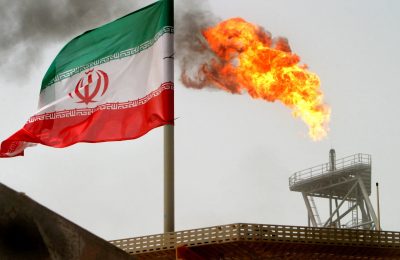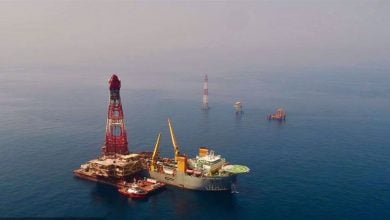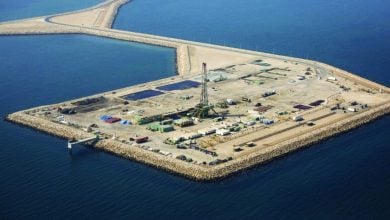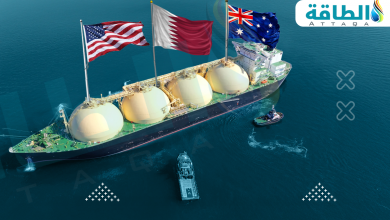The future of Iran Energy Exports to Iraq
Dr. Umud Shokri

Iran Energy Exports.. With the second largest natural gas reserves in the world, Iran has not yet been able to increase its share of the global energy market.
Numerous sanctions and increasing domestic consumption have caused Iran to face a shortage of natural gas in some seasons. Iran currently has no major export destination other than gas exports to Turkey and Iraq.
Natural gas exports to Iraq and Turkey in recent years Increasing gas consumption in Iran has faced many problems and Iran has repeatedly reduced the volume of gas exported to these countries and in some cases under the pretext of repairing the pipeline has cut off gas exports to these countries.
Although Iraq is seeking help from international oil companies to collect gas along with oil to supply power and reduce dependence on Iranian gas and electricity imports, experts say this requires infrastructure.
Iraq and the Iranian Gas
Iraq, OPEC's second-largest producer after Saudi Arabia, is dependent on oil sales for more than 90 percent of its budget revenue and is under pressure from the United States to reduce its dependence on gas imports.
The Iraqi electricity grid has remained weak after years of war that has destroyed vital infrastructure, and the intermittent supply of gas and electricity from Iran has led to widespread power shortages in Iraq, especially during the hot summer months. Power outages have repeatedly provoked widespread protests from Iraqis.

It should be noted that because Iran has not been a reliable supplier to Turkey and Iraq, in recent years these countries have been looking for alternatives to Iranian imported gas, while the difficult situation of the Iranian natural gas market affects the entire Middle East.
According to Adel Karim Iraq's Minister of Electricity, the country has about 6 gigawatts of electricity capacity, about a third of which has been out of production after the cessation of Iranian gas exports due to cold weather. The country's worst energy crisis in decades has reduced power supplies for industrial users.
In response to declining gas exports from Iran, Turkey has sought to use temporary markets for liquefied natural gas , and the government has requested an increase in Azerbaijani gas imports through the Ceyhan pipeline.
Iraq's Debts
The paying off Iraq's debts due to electricity and natural gas from Iran has also posed a serious challenge to Iran's energy exports to Iraq.
In February, the issue was seriously discussed again. Iraq is $1.6 billion in arrears on its payments for imports of Iranian gas, its acting electricity minister has said, urging Washington to allow cash payments despite its Tehran sanctions.
Despite its immense oil and gas reserves, Iraq remains dependent on imports to meet its energy needs, and neighboring Iran currently supplies a third of its gas and electricity under a tightly controlled waiver from US sanctions.
Last week Iraqi Electricity Minister Adel Karim said the country and Iran had reached an agreement to resume Iranian gas exports and pay Baghdad's debts to Tehran.
According to Adel Karim, during his visit to Tehran, he agreed with the Iranian side to import gas to Iraq in the summer, and they pledged to equip power plants and power generation units.
It has become a very popular commodity and achieving Iraq's needs is an achievement, and we anticipate that the supply of electricity to the citizens will be good during the summer, and we ask the citizens to save on consumption to ensure a good distribution of electricity to all.
Energy production in Iraq is good, but consumption is very high, increasing by more than 600 percent since 2003.
A Need for Investments
Iran needs to invest in South Pars to improve its situation and increase gas production and maintain global markets, which provides more than 70% of Iran's gas needs.
The cost of developing the remaining phases of the gas field is estimated at $ 7.8 billion. But until then, perhaps the countries that are customers of Iranian gas may start working and think of an alternative market for Iran.
The Iranians may be patient, but this is not a reason for the countries that are customers of Iranian gas to wait like this country. Iraq has been negotiating with some countries in recent years to import electricity and natural gas to diversify its energy resources.
For Iran, it is a matter of debate, it should be noted that the Iraqi power industry needs at least seven billion cubic feet per day of feed for 40 gigawatts of installed capacity, which means that there is a long way to go to cut dependence on imports from Iran.
In addition, annual energy consumption is growing by five to seven percent due to population growth. Iran may be able to continue exporting electricity and natural gas to Iraq for a short time, but until sanctions are lifted and investment in Iran's energy infrastructure is made, and domestic consumption is managed, Iran will face many challenges in maintaining its share of the regional energy market.
Seriously, Iraq could cut its dependence on Iran's energy resources completely in the medium term. If Iran loses the Iraqi energy market, it will also mean a reduction in Iran's political influence in Iraq.
Dr Umud Shokri, Author of "US Energy Diplomacy in the Caspian Sea Basin Changing Trends Since 2001", Foreign Policy&Energy Consultant.









